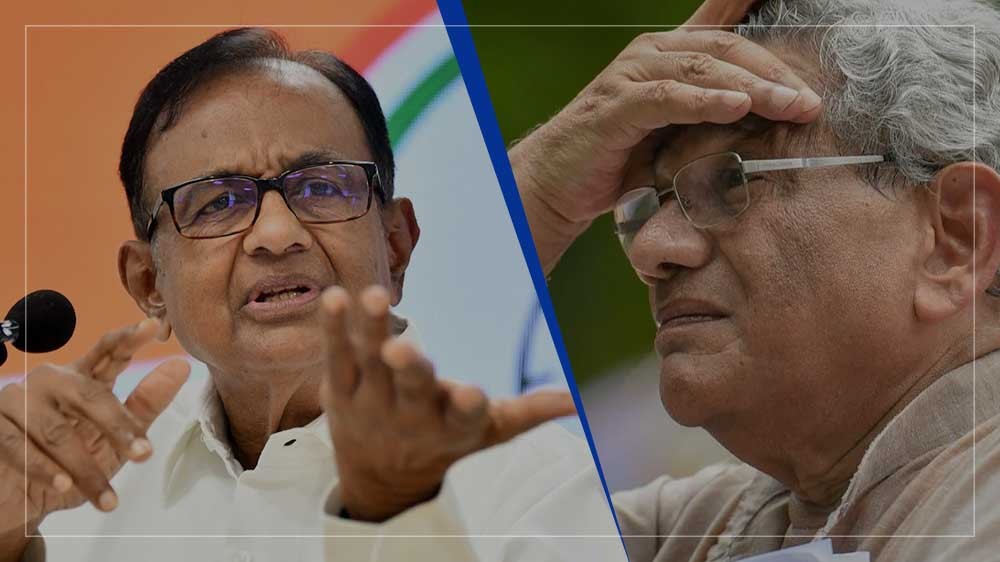Union Budget 2024: Finance Minister Sitharaman Outlines Decade Of Transformation


In a comprehensive overview of the last 10 years, Finance Minister Nirmala Sitharaman presented a Union Budget for 2024 that highlighted the country's economic transformation. The interim budget speech outlined key achievements and initiatives that have shaped the nation's development trajectory.
Economic Landscape In 2014
A backdrop of enormous challenges marked the beginning of the decade, with the government overcoming hurdles through structural reforms and pro-people initiatives. The stage was set for job creation and entrepreneurship, leading to widespread development and a renewed sense of purpose and hope.
The government, in its second term, fortified its commitment to inclusivity, covering both social and geographical aspects. Amid the challenges posed by the COVID-19 pandemic, India embraced a whole-of-nation approach, laying strong foundations for Aatma Nirbhar Bharat and Amrit Kaal.
Development programs targeted every household, focusing on housing, water, electricity, cooking gas, and financial services, reaching all segments of society. Free rations for 80 crore people alleviated worries about food, while periodic increases in MSP for agricultural produce enhanced real income in rural areas.
Focus On Social Justice
The government emphasized social justice as an effective governance model, adopting a saturation approach to cover all eligible individuals, irrespective of social standing. Transparency and assurance of benefits for all aimed at reducing corruption and preventing nepotism.
The government prioritized the empowerment and well-being of the poor, women, youth, and farmers. Direct financial assistance under various schemes, including PM Kisan Samman Yojana and PM SVANIDHI, assisted millions in breaking free from multidimensional poverty.
PM Mudra Yojana sanctioned 43 crore loans amounting to INR 22.5 lakh crore, promoting entrepreneurial aspirations among the youth. The National Education Policy 2020 ushered in transformative reforms, while Skill India Mission trained and upskilled millions. Numerous institutions of higher learning were established, including IITs, IIITs, IIMs, AIIMSs, and universities.
Empowering women through entrepreneurship and enhancing their quality of life and dignity gained momentum. MUDRA Yojana loans, increased female enrollment in higher education, and a significant presence in STEM courses highlighted the growing participation of women in the workforce.
Outcomes And Future Vision
The Finance Minister emphasized a departure from the earlier approach of focusing on outlays, highlighting the government's commitment to addressing systemic inequalities and achieving socioeconomic transformation. The vision for 2047 is to make India a Viksit Bharat, with a focus on all-round, all-inclusive, and all-pervasive development.
The Direct Benefit Transfer of INR 34 lakh crore through PM Jan Dhan accounts resulted in substantial government savings by avoiding leakages, enabling more funds for welfare programs.
Economic management has been a cornerstone of the government's strategy, complementing people-centric inclusive development. Noteworthy achievements include the rapid construction of all forms of infrastructure, transforming all regions into active participants in economic growth.
The government's focus on digital public infrastructure has played a pivotal role in the formalization of the economy. Initiatives such as the Goods and Services Tax (GST) have successfully established One Nation, One Market, One Tax, promoting economic unity and efficiency.
Tax Reforms and Widening Tax Base
The commitment to tax reforms has resulted in a deepening and widening of the tax base, ensuring a more robust and sustainable revenue structure. These reforms have contributed to the overall economic stability and development.
The financial sector has undergone significant strengthening, enhancing the efficiency of savings, investment, and credit mechanisms. Initiatives such as the GIFT IFSC (International Financial Services Centre) and Unified Regulatory Authority IFSCA are creating a robust gateway for global capital and financial resources.
Proactive inflation management measures have successfully kept inflation within the policy band, contributing to overall economic stability. This approach has ensured that economic policies remain conducive to sustainable growth and development.
The establishment of GIFT IFSC and the Unified Regulatory Authority IFSCA is positioning India as a robust gateway for global capital and financial resources. This initiative reflects the government's commitment to fostering international investment and financial stability.











